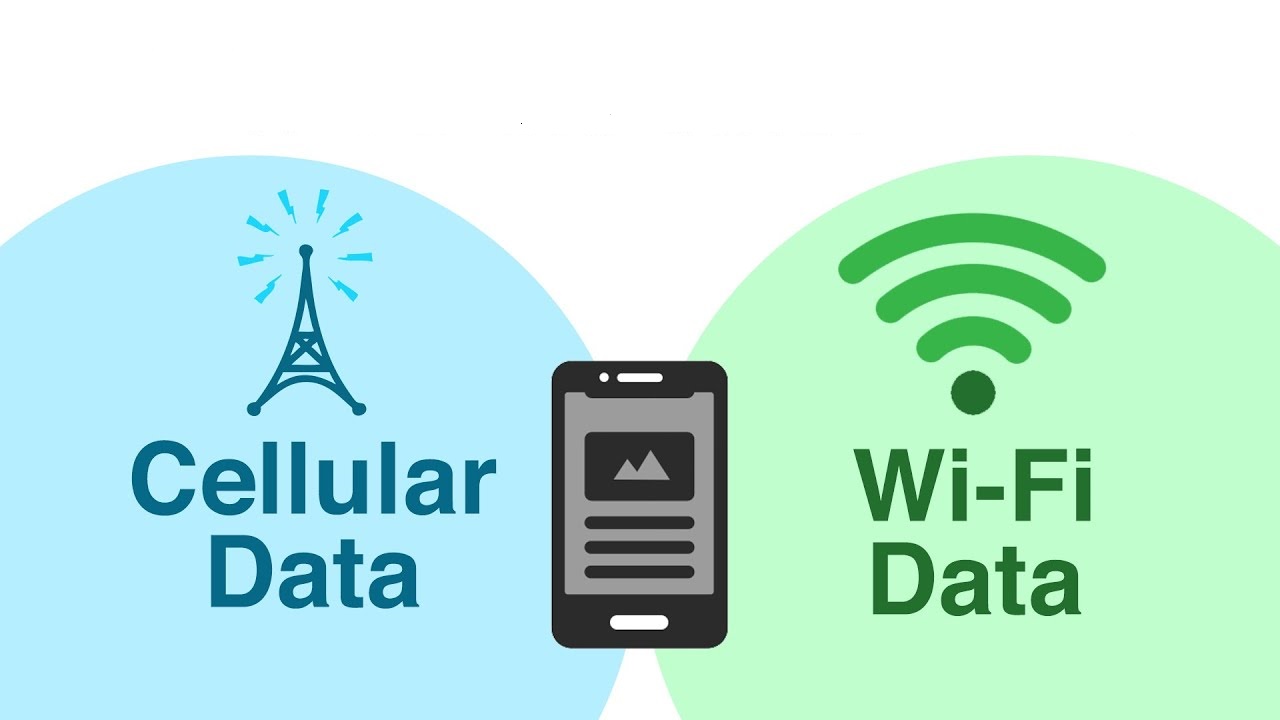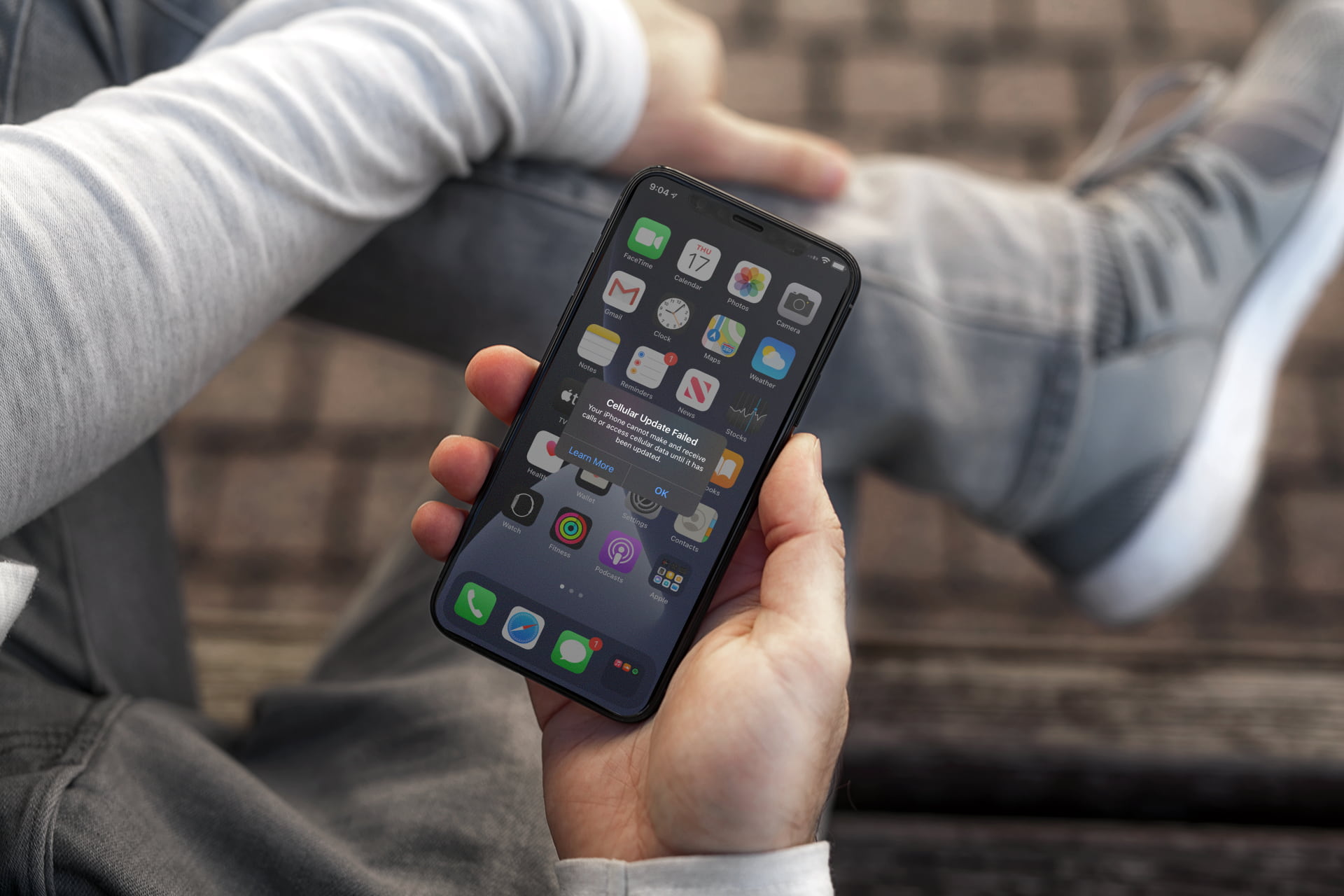What's the Difference Between Wi‑Fi Data and Cellular Data?

Wed, Feb 23, 2022 02:08 AM
The age-old question of whether to utilize cellular or not. If you remember a few tricks, the answer is rather simple.
The primary distinction between Wi-Fi and cellular data (sometimes known as "mobile data") is the method through which your device connects to the internet. You can use cellular to access the internet, apps, Twitter, Instagram, Google, or your email from almost anywhere. All you need is a data-enabled phone plan to be within range of a cell tower. When you're near a router and connected to its network, Wi-Fi, on the other hand, links you to the internet. We can go over all of the scientific details later, but for now, that's all you need to know.
When should I use Wi-Fi and when should I use cellular data?
If your cellular coverage is weak and you need a faster connection, you may wish to use Wi-Fi. When watching Netflix, Youtube videos, our owner's movies, or playing video games, we recommend using Wi-Fi because these activities might consume a lot of your valuable data. When you're at home, school, or work, it's also a good idea to turn on the Wi-Fi. In addition, cellular drains your phone's battery faster than Wi-Fi. To cut a long tale short, use Wi-Fi whenever you have confidence in the network. Save your data as well as your money.
Does Wi-Fi Use Data?
Nope. You're conserving data when you connect to a Wi-Fi server. Since we're living in the internet's golden age, most houses, offices, stores, and coffee shops have their own Wi-Fi networks to which you can join. This is why, contrary to popular belief, most people do not require as much data on their phone plan as they may believe. This is especially true for people who pay Big Wireless large prices for unlimited data contracts.
Given the rise in remote working, now may be the ideal time to assess how much data you actually require. If you spend the majority of your time connected to Wi-Fi, you may want to consider switching to a less expensive, lower data plan. With Unliminted service, you can start with our unlimited plan and we'll let you know if you could be saving money based on your data usage, and even propose switching to one of those plans.
Related: Easy Ways to Reduce Data Plan Usage
Now, let's return to the original question. When you're connected to Wi-Fi, the only time you'll be consuming data is if you have the "Wi-Fi Assist" option set on. If your Wi-Fi signal is weak, Wi-Fi Assist will prompt your phone to use cellular data to speed up your internet connection.
If you're in a room of your house where the Wi-Fi connection isn't great, or if you're on a crowded network in a public place, this could happen.
How to turn off Wi-Fi assist
If you're concerned about going over your data limit, you can disable Wi-Fi Assist as follows:
-
Go to your device's settings.
-
Select Cellular from the drop-down menu.
-
Go all the way to the bottom of the page.
-
Turn the "Wi-Fi Assist" option off.
If your phone plan includes a lot of data, you may want to keep this function turned on to ensure a lightning-fast connection.

How Do I Turn On My Phone's Wi-Fi?
It's actually quite simple to turn on Wi-Fi on your phone:
-
Go into your phone's settings app.
-
Select the Wi-Fi symbol. (It's usually near the top of the list.)
-
Select a network. To be safe, you should generally only click on networks that you're familiar with.
-
Enter the password for it.
You are free to browse the internet at your leisure.
When Is It Appropriate to Use Cellular Data?
If you need to access the internet while on the go, cellular data is quite beneficial. If your Wi-Fi connection isn't robust or you're concerned about the security of a Wi-Fi network, you should switch to cellular.
How Do I Turn On Cellular Data?
Swiping down on the home screen on most phones will bring up a quick access panel. From there, simply make sure the Cellular Data icon is switched on to enable cellular data. From the settings menu, you can also enable cellular data:
Cellular Data (Settings > Cellular)
Cellular allows you to access the internet from anywhere, whether you're traveling home on the train, listening to your favorite podcast in the vehicle, or longing to upload a game-day selfie from the stands.
Featured Plan

Bundles starting from $39.99/mo.
With Xfinity, you can get an amazing internet speed up to 1000 Mbp, over 260+ of digital TV channels, unlimited talk time nationwide, business plan, and home security services. Xfinity Comcast is the largest cable provider in the US.
View More Deals! (833) 396-3209